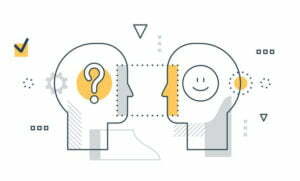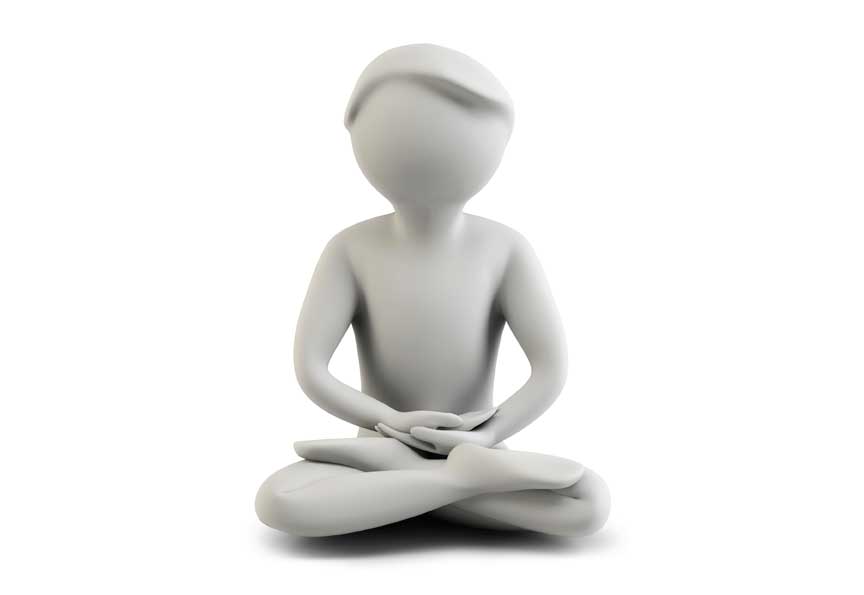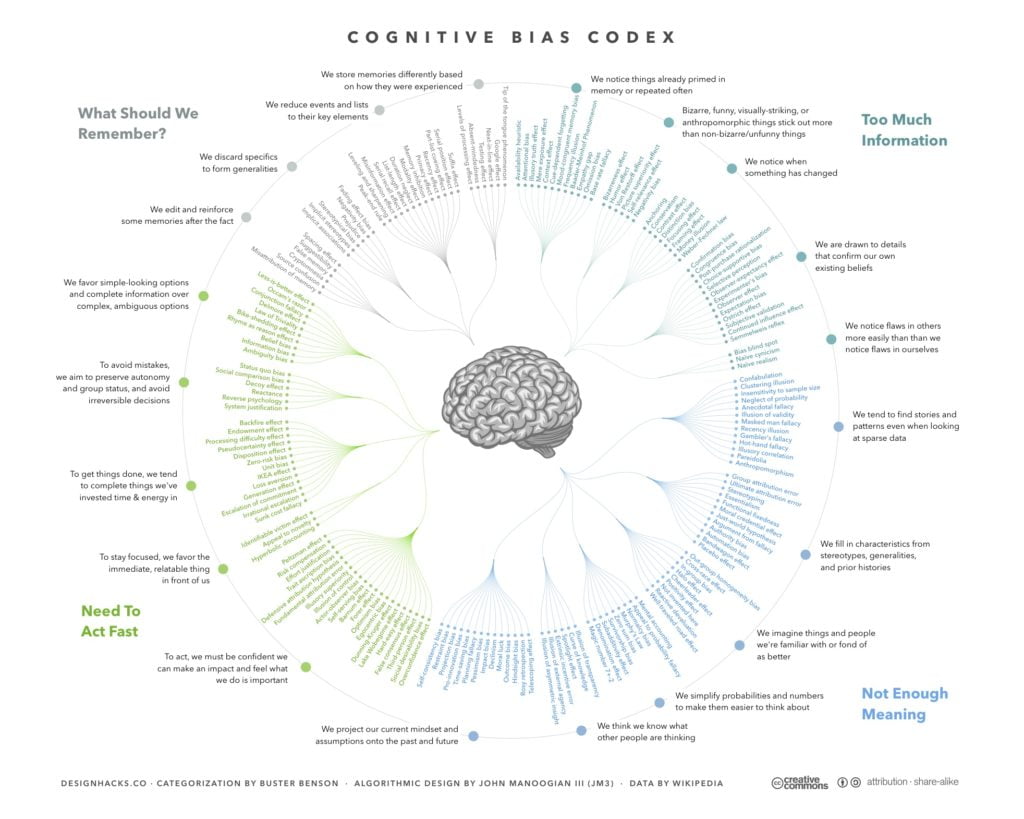It’s amazing we get anything right.
 When surveyed, 80% of software developers reported they believed their skills were above average. Overestimating one’s desirable qualities (and underestimating undesirable qualities) relative to other people is known as the Illusory Superiority Bias, aka the Lake Wobegon effect, one of many cognitive biases.
When surveyed, 80% of software developers reported they believed their skills were above average. Overestimating one’s desirable qualities (and underestimating undesirable qualities) relative to other people is known as the Illusory Superiority Bias, aka the Lake Wobegon effect, one of many cognitive biases.
What exactly is a cognitive bias? Wikipedia says:
A cognitive bias refers to the systematic pattern of deviation from norm or rationality in judgment, whereby inferences about other people and situations may be drawn in an illogical fashion. Individuals create their own “subjective social reality” from their perception of the input. An individual’s construction of social reality, not the objective input, may dictate their behavior in the social world. Thus, cognitive biases may sometimes lead to perceptual distortion, inaccurate judgment, illogical interpretation, or what is broadly called irrationality.
Cognitive biases have been shown in a wide range of species including rats, dogs, rhesus macaques, sheep, chicks, starlings, honeybees, and one that interests me the most: humans.
Where do cognitive biases come from?
Biases affect beliefs, decisions, and behavior in general and arise from various processes that are sometimes difficult to distinguish. These include:
- Information-processing shortcuts (heuristics)
- Noisy information processing (distortions in the process of storage in and retrieval from memory)
- The brain’s limited information processing capacity
- Emotional and moral motivations
- Social influence
How many cognitive biases are there?
There are so freakin’ many (~188) that a very kind person has helped by organizing them into four categories:
Biases that arise from:
- Too much information
- Not enough meaning
- The need to act quickly
- The limits of memory
And here they all are in a nice neat codex:
What can we do about ’em?
Humans are particularly susceptible to biases when we’re tired, stressed, or multitasking.
Short of eliminating those factors, I suggest you start simply with awareness like you would with any change program.
Read more if you dare…
- 20 Cognitive Biases That Affect Your Decisions – Business Insider sifted through a pile of research and highlighted 20 of the most common cognitive biases that can lead to bad decision-making, including the idea that the more information you have, the more likely you are to make the smartest choice 🙂
- Cognitive bias cheat sheet. Because thinking is hard – Better Humans along with John Manoogian III built the above codex in an attempt to help us all remember the four giant problems our brains have evolved to deal with over the last few million years.
- The Ultimate Cognitive Bias Survival Guide – To help all of us escape our mental quicksand GeekWrapped put together a Survival Guide. Filled with helpful tips to reduce wrong conclusions and bad choices.




